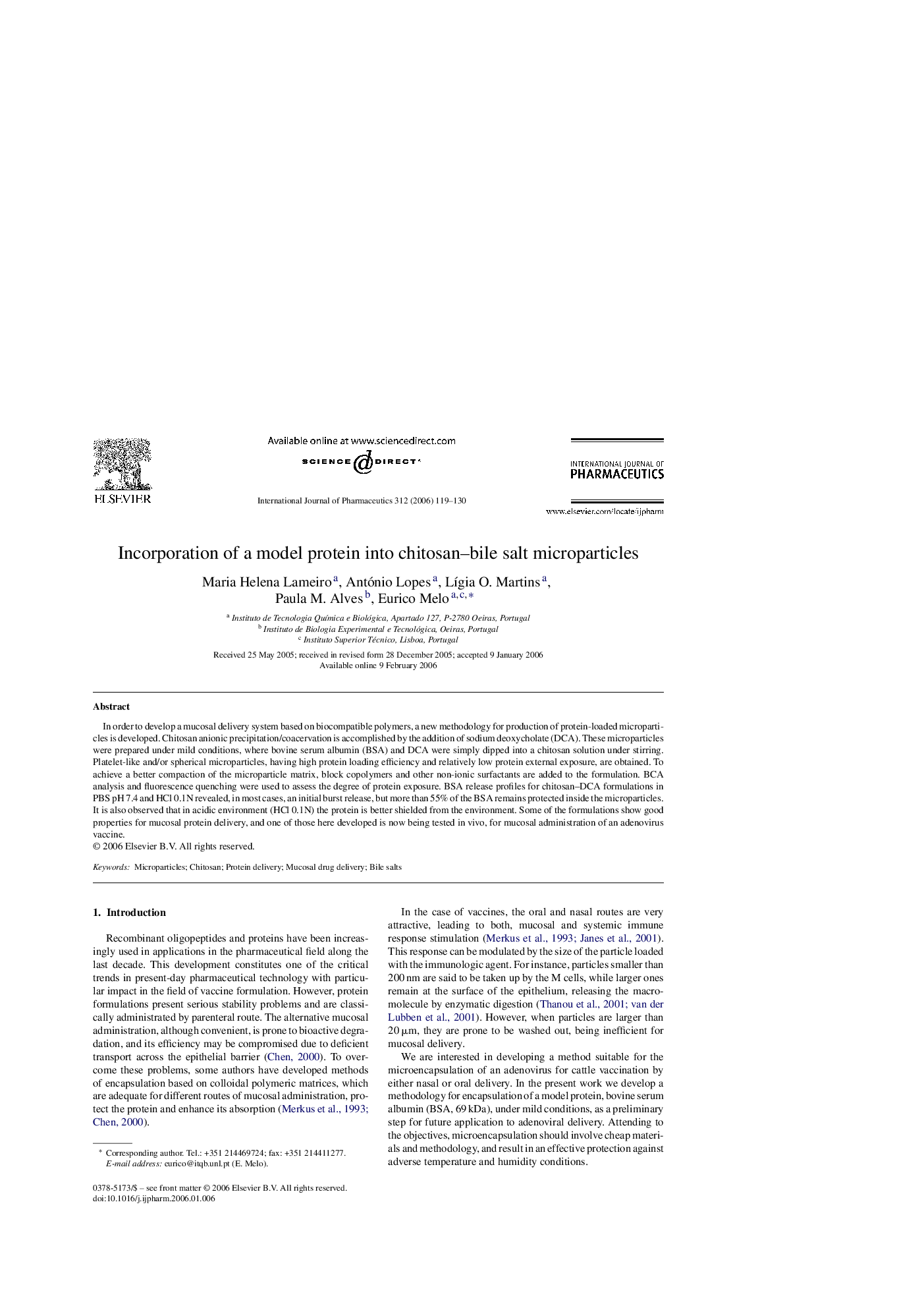| Article ID | Journal | Published Year | Pages | File Type |
|---|---|---|---|---|
| 2506982 | International Journal of Pharmaceutics | 2006 | 12 Pages |
In order to develop a mucosal delivery system based on biocompatible polymers, a new methodology for production of protein-loaded microparticles is developed. Chitosan anionic precipitation/coacervation is accomplished by the addition of sodium deoxycholate (DCA). These microparticles were prepared under mild conditions, where bovine serum albumin (BSA) and DCA were simply dipped into a chitosan solution under stirring. Platelet-like and/or spherical microparticles, having high protein loading efficiency and relatively low protein external exposure, are obtained. To achieve a better compaction of the microparticle matrix, block copolymers and other non-ionic surfactants are added to the formulation. BCA analysis and fluorescence quenching were used to assess the degree of protein exposure. BSA release profiles for chitosan–DCA formulations in PBS pH 7.4 and HCl 0.1N revealed, in most cases, an initial burst release, but more than 55% of the BSA remains protected inside the microparticles. It is also observed that in acidic environment (HCl 0.1N) the protein is better shielded from the environment. Some of the formulations show good properties for mucosal protein delivery, and one of those here developed is now being tested in vivo, for mucosal administration of an adenovirus vaccine.
